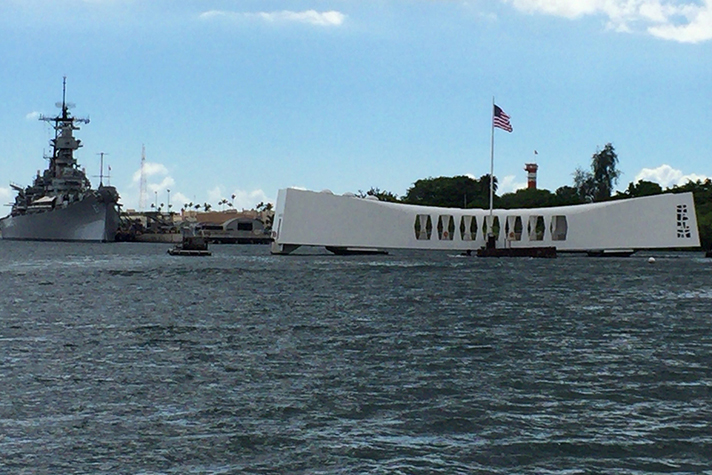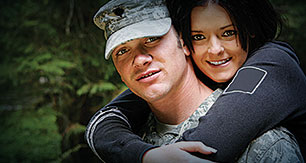
Today marks 81 years since more than 2,000 Americans lost their lives and another 1,000 were injured during a surprise military strike against the United States naval base at Pearl Harbor, Hawaii. On December 7, 1941, nearly 20 naval vessels and more than 300 airplanes were destroyed. Among the wreckage was the USS Arizona battleship, which was hit by a 1,800-pound bomb. The vessel exploded and sank with 1,000 men trapped inside.
In his 1997 autobiography, Just As I Am, Billy Graham recalled the thoughts and emotions he experienced when he heard the news that fateful day—while attending school at Wheaton College—and how it later influenced his ministry to the military.
“On Sunday evening, December 7, 1941, someone told me that Pearl Harbor had been attacked. I had no idea where Pearl Harbor was—I had never heard of it. Then, on my way from the Tab [United Gospel Tabernacle Church] back to my room, I heard from a newsboy hawking a special edition of the Chicago Tribune that the United States was at war with Japan.
“I got into my car and drove over to the Lane house. Students and friends who gathered there on Sundays were usually up on all the latest happenings in the world. As I entered the front door, Howard Van Buren met me and told me the grim story of Japan’s surprise attack on our naval base.
“The next morning, Dr. Edman [the president of Wheaton College, nicknamed “Prexy”] called the whole student body together for a special chapel service. Prexy had been a soldier in the trenches in World War I. He knew, as General Sherman had said, that war was hell; he also knew that some of his students would die before it was over.
“My first thought was to volunteer. Not that I felt I would make a good fighting man. Indeed, as a cadet in the Army training program on campus, I had nearly cut one fellow’s head off with my bayonet when I made a sudden wrong turn during a drill. But, as an ordained Baptist minister, I knew there had to be a place in the Chaplains’ Corps for a person like me.”
Service Delayed
Graham wrote immediately to the War Department to ask about the possibility of becoming a chaplain. They said he would have to finish college and then take a seminary course.
“In the next three semesters,” Graham recalled, “schoolwork took on a new seriousness, and the pastoral ministry to members of the Tab’s congregation deepened along with the preaching. Life and death were not abstractions to us anymore, and the Wheaton township of seven thousand shared with the rest of the nation the anxiety and pain and grief of war.”
In the next few years, after graduating from Wheaton, getting married, and becoming the pastor at Western Springs Baptist Church in Illinois, Graham was accepted into the Army’s chaplaincy program. “I would have passed my previous physical in Chicago and joined up earlier but for the humiliating fact that I was three pounds underweight. I had requested a couple more months to fatten up. The Army granted the extension.”
Although he soon gained the extra pounds, an extended and severe case of the mumps prevented Graham from going to Harvard, where the chaplaincy school was located. His illness took a great toll, and he describes “desperately needing to regain my strength.” So, Billy and Ruth accepted an invitation to recover in Florida. It was there that Torrey Johnson and Graham formally joined forces to lead Youth for Christ.
A Lifelong Ministry
The Army’s chief of chaplains granted him a discharge, since the end of the war seemed in sight, agreeing with Graham that “I could make a far greater contribution to the spiritual well being of service people by organizing and preaching at youth rallies than I could serving as a chaplain.”
Concern for the military continued to be a hallmark of Graham’s ministry. As just one example, he spent Christmas Day, 1952, with troops on the battlefront in Korea.
Of his experience, Graham said, “I wept more in Korea than in all the past several years put together. These experiences changed my life. I could never be quite the same again. …I felt sadder, older. I felt as though I had gone in a boy and come out a man.”
In times of war and times of peace, you can have peace with God. Find that peace today.


